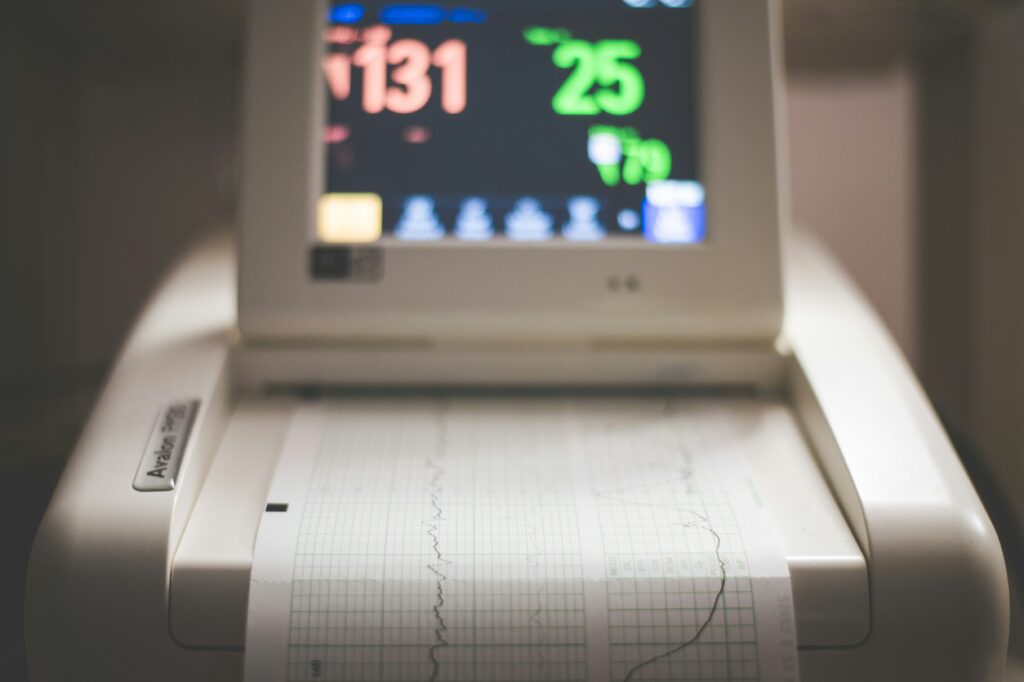Research
REAL WORLD RESEARCH
AND HEALING
At the Mission Within Foundation, we are committed to advancing the science behind psychedelic-assisted therapies. In collaboration with leading academic institutions, we support and facilitate research on ibogaine, psilocybin, and 5-MeO-DMT.
Our goal is to generate rigorous data that can inform clinical practices, influence policy, and ensure broader access to safe and effective treatments.

We Are Currently Involved in Three Pivotal Research Studies:
01: Psychedelic Therapy for Surviving Family Members
About the Study - Female Participants needed
In partnership with The Center for Psychedelic Research and Therapy at UT Austin’s Dell Medical School, this groundbreaking study is the first of its kind to explore the impact of psychedelic-assisted therapy on complicated grief, depression, or posttraumatic stress symptoms, in bereaved family members of military personnel.
We’ll examine how brain function is influenced by psychedelic-assisted therapy and how this may impact psychiatric symptoms related to the loss of a loved one. Family of military service members are prone to experiencing symptoms of complicated grief/prolonged grief disorder, particularly because military-related deaths often occur suddenly and without warning.
Transportation and hotels in Austin will be covered, as will incidental expenses for meals and ground transportation. If the grieved, lost loved one was a veteran family member, then the cost of your retreat will also be covered. Please contact us for more information.
Individuals can earn up to $925 for participation in this study and will additionally be provided two all-expenses-paid trips to Austin, TX. You could also be reimbursed to hire a caregiver in your absence if you meet certain requirements. This is an impactful opportunity to contribute to providing better mental health treatment for complicated grief/prolonged grief.
What will this study test?
The study will test the hypothesis that the receipt of psilocybin or 5-MeO-DMT assisted psychotherapy will: (1) demonstrate therapeutic benefits for mental health symptoms of prolonged/complicated grief, depression, or posttraumatic stress symptoms; and (2) promote changes in brain function that show relationships to facets of clinical symptom change.
This study will measure changes in brain function utilizing functional magnetic resonance imaging (fMRI) and electroencephalographic recordings (EEG) that occur before and after participating in a retreat. Additional tests and measures will be performed.
What are the exclusion criteria for participants?
1. Evidence of the current or prior history of psychosis or bipolar disorder as evidenced by self-report or clinical interview.
2. Unremovable ferrous metal in the body.
3. History of neurological disorder, stroke, seizures/convulsions (except febrile seizures in childhood), epilepsy, brain surgery, electroconvulsive or radiation treatment, brain hemorrhage or tumor, moderate-to-severe head injury or any penetrating head injury, or an uncontrolled thyroid disorder.
4. Current psychological and/or physical conditions that would be contraindicated for treatment with psilocybin or 5-MeO DMT, including, but not limited to, uncontrolled hypertension, cardiac arrhythmias, the taking of certain medications known to be contraindicated for use with serotonergic psychedelics (e.g., monoamine oxidase inhibitors), current active alcohol or drug dependence, and being pregnant or about to become pregnant.
You may qualify for this test if you are
- Female, over the age of 18, and fluent in English.
- Currently experiencing mental health difficulties related to the death of a family member such as a spouse, parent, child, sibling, cousin, or other close relationship such as a long-term romantic partner.
- Meeting criteria for prolonged grief.
- Not pregnant, planning to become pregnant, or claustrophobic.
- Willing to travel to the Austin, TX Dell Med facility for fMRI scans, vision and EEG measurements.
- Willing to travel to the Austin, TX Dell Med facility for fMRI scans, vision and EEG measurements.
If you are interested in participating, the first step would be to complete a brief online questionnaire. Please use the referral code HHP when prompted by our online questionnaire.
Goals
- To evaluate whether psilocybin or 5-MeO-DMT-assisted psychotherapy improves symptoms of prolonged grief, depression, or PTSD.
- Conduct detailed medical history assessments and risk stratification
Design
Impact
02: Ibogaine and Brain Function in Special Operations Veterans
About
Also conducted with UT Austin’s Dell Medical School, this study examines the effects of ibogaine therapy on the brain health of Special Operations Forces veterans—one of the most resilient yet deeply affected communities we serve.
Goals
- To explore how ibogaine treatment impacts neurological markers of trauma and emotional regulation in veterans with treatment-resistant symptoms.
- To track measurable changes in brain function pre- and post-treatment using cutting-edge brain imaging technology.
Eligibility
Impact
03: Prospective Outcomes Study: Marines and Psychedelic Therapy
About
Goals
- PTSD symptoms
- Moral injury
- Compassion
- Flourishing and well-being
- Chronic pain
- Substance use
- Mystical experience and transformation
Design
- Pre-treatment
- 1 day post-treatment
- 3 months post-treatment
- 6 months post-treatment
Impact
01: Psychedelic Therapy for Surviving Family Members
About the Study - Female Participants needed
In partnership with The Center for Psychedelic Research and Therapy at UT Austin’s Dell Medical School, this groundbreaking study is the first of its kind to explore the impact of psychedelic-assisted therapy on complicated grief, depression, or posttraumatic stress symptoms, in bereaved family members of military personnel.
We’ll examine how brain function is influenced by psychedelic-assisted therapy and how this may impact psychiatric symptoms related to the loss of a loved one. Family of military service members are prone to experiencing symptoms of complicated grief/prolonged grief disorder, particularly because military-related deaths often occur suddenly and without warning.
Transportation and hotels in Austin will be covered, as will incidental expenses for meals and ground transportation. If the grieved, lost loved one was a veteran family member, then the cost of your retreat will also be covered. Please contact us for more information.
Individuals can earn up to $925 for participation in this study and will additionally be provided two all-expenses-paid trips to Austin, TX. You could also be reimbursed to hire a caregiver in your absence if you meet certain requirements. This is an impactful opportunity to contribute to providing better mental health treatment for complicated grief/prolonged grief.
What will this study test?
The study will test the hypothesis that the receipt of psilocybin or 5-MeO-DMT assisted psychotherapy will: (1) demonstrate therapeutic benefits for mental health symptoms of prolonged/complicated grief, depression, or posttraumatic stress symptoms; and (2) promote changes in brain function that show relationships to facets of clinical symptom change.
This study will measure changes in brain function utilizing functional magnetic resonance imaging (fMRI) and electroencephalographic recordings (EEG) that occur before and after participating in a retreat. Additional tests and measures will be performed.
What are the exclusion criteria for participants?
2. Unremovable ferrous metal in the body.
3. History of neurological disorder, stroke, seizures/convulsions (except febrile seizures in childhood), epilepsy, brain surgery, electroconvulsive or radiation treatment, brain hemorrhage or tumor, moderate-to-severe head injury or any penetrating head injury, or an uncontrolled thyroid disorder.
4. Current psychological and/or physical conditions that would be contraindicated for treatment with psilocybin or 5-MeO DMT, including, but not limited to, uncontrolled hypertension, cardiac arrhythmias, the taking of certain medications known to be contraindicated for use with serotonergic psychedelics (e.g., monoamine oxidase inhibitors), current active alcohol or drug dependence, and being pregnant or about to become pregnant.
You May Qualify for this test if you are
- Female, over the age of 18, and fluent in English.
- Currently experiencing mental health difficulties related to the death of a family member such as a spouse, parent, child, sibling, cousin, or other close relationship such as a long-term romantic partner.
- Meet the criteria for prolonged grief.
- Meeting criteria for prolonged grief.
- Not pregnant, planning to become pregnant, or claustrophobic.
- Willing and able to undergo fMRI brain scans, vision measures, and EEG with optional blood draw.
- Willing to travel to the Austin, TX Dell Med facility for fMRI scans, vision and EEG measurements.
If you are interested in participating, the first step would be to complete a brief online questionnaire. Please use the referral code HHP when prompted by our online questionnaire.
Goals
- To evaluate whether psilocybin- or 5-MeO-DMT-assisted psychotherapy improves symptoms of prolonged grief, depression, or PTSD.
- Conduct detailed medical history assessments and risk stratification
Design
Impact
Thanks to your support, we have already been able to treat six participants in this study, helping to lay the foundation for a new standard of care for complicated grief, depression, and posttraumatic stress. This research has far-reaching implications for how we approach trauma in surviving military families and beyond.
02: Ibogaine and Brain Function in Special Operations Veterans
Goals
- To explore how ibogaine treatment impacts neurological markers of trauma and emotional regulation in veterans with treatment-resistant symptoms.
- To track measurable changes in brain function pre- and post-treatment using cutting-edge brain imaging technology.
Eligibility
Impact
This is one of the only studies globally to explore ibogaine’s effect on brain function in elite veterans. Findings may lead to greater acceptance of ibogaine as a strong treatment pathway for those suffering from PTSD, TBI, and
depression.
03: Prospective Outcomes Study: Marines and Psychedelic Therapy
Goals
- PTSD symptoms
- Moral injury
- Compassion
- Flourishing and well-being
- Chronic pain
- Substance use
- Mystical experience and transformation
Design
- Pre-treatment
- 1 day post-treatment
- 3 months post-treatment
- 6 months post-treatment
Impact
Why Research Matters
Our research helps guide policy decisions and expands access to safe, evidence-based treatments.

